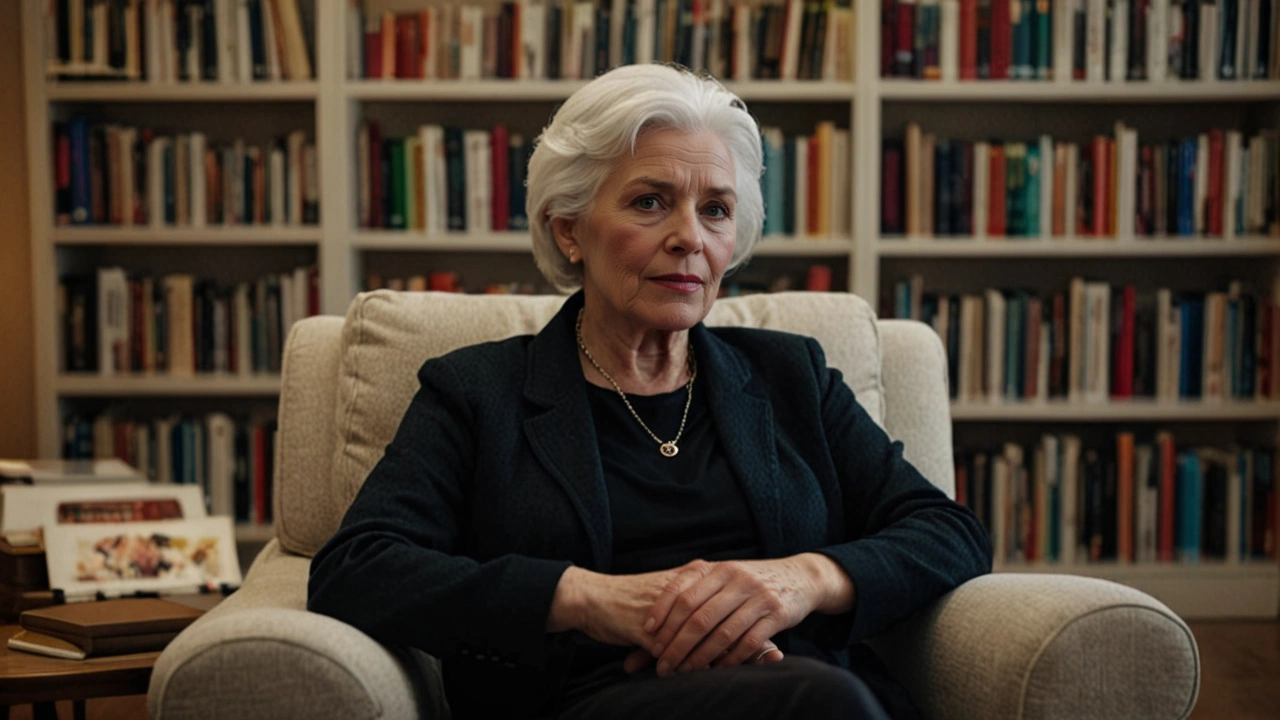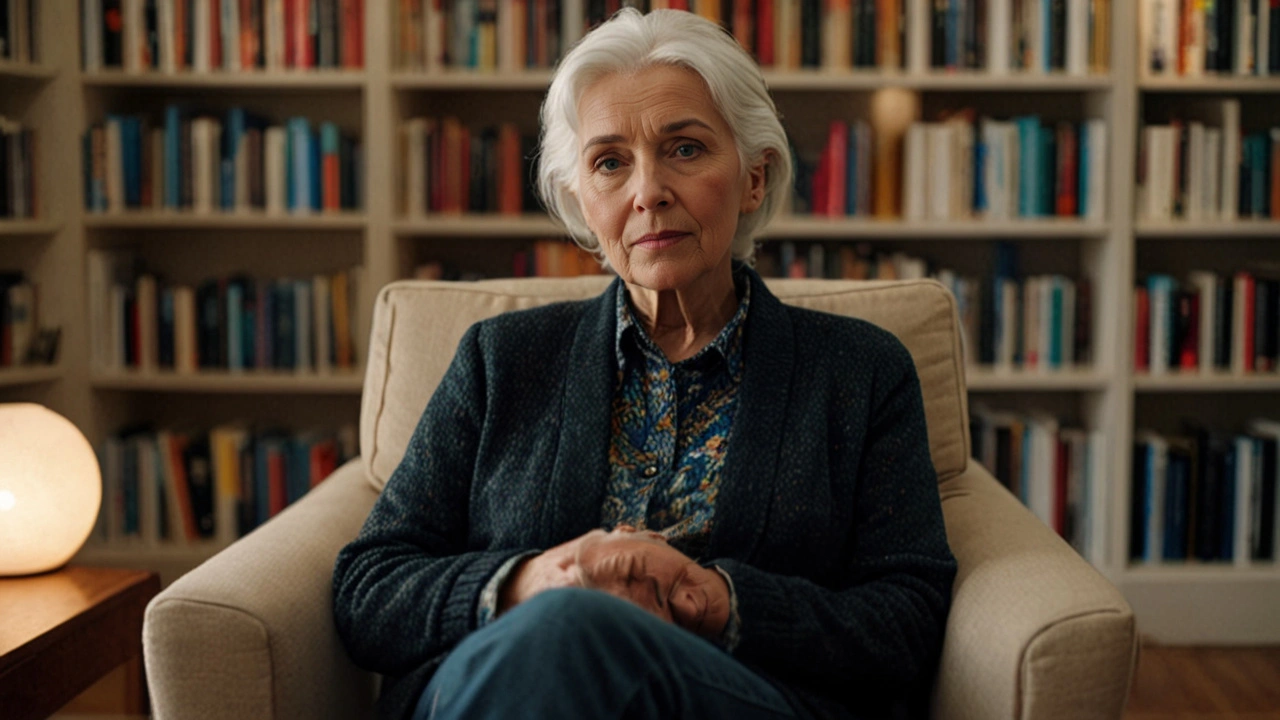Staggering Revelations From Andrea Skinner
The literary world has been rocked by explosive revelations from Andrea Skinner, the daughter of acclaimed Nobel laureate Alice Munro. In a candid essay published in the Toronto Star, Andrea has unveiled a harrowing account of prolonged sexual abuse that she endured at the hands of her stepfather, Gerald Fremlin, from the tender age of nine.
Skinner's revelations are not just about the abuse but also about the complex dynamics within her family. She recounts how her mother, Alice Munro, was aware of the abuse yet chose to stay with Fremlin, a decision that is now under intense scrutiny. The detailed account discusses the severe and lasting impact on Skinner and paints a stark picture of betrayal and silence that lasted for years.
Details of the Abuse
According to the essay, the abuse began when Andrea was only nine years old and continued for several years, creating an environment of fear, confusion, and betrayal. What stands out as particularly damning is that Alice Munro, a figure celebrated worldwide for her profound and empathetic storytelling, was aware of her daughter’s plight but chose not to act, remaining with Fremlin until his death in 2013.
Skinner reveals that the first time she disclosed the abuse to her mother was at the age of 25. Rather than receiving the support she desperately needed, she was met with disbelief and anger. Andrea asserts that her mother reacted as though she had been deeply betrayed, accusing her former husband of orchestrating the revelation to humiliate her.
Impact on Munro's Legacy
These revelations have sent shockwaves across the literary world, casting a shadow over Munro's legacy. Often hailed as one of the greatest short story writers, Munro's works are celebrated for their profound insight into human nature and relationships. However, Skinner’s essay forces readers and critics alike to reassess Munro's personal life and reconsider how her works are interpreted in light of these personal failings.
Munro Books, the bookstore founded by Alice Munro, has come forward in support of Andrea. The bookstore's public stance reflects a broader reassessment within the literary community, which is grappling with the complex legacy of a beloved writer now mired in controversy.
Emotional and Psychological Toll
The emotional and psychological toll of the abuse on Andrea cannot be overstated. Her essay sheds light on the deep scars left by the prolonged molestation and her mother's apparent neglect. It also delves into the complexities of familial love and loyalty, casting a poignant and, at times, excruciatingly painful gaze on the contradictions and nuances of human relationships.
Andrea recounts the immense burden of carrying the secret for so long, the devastating impact on her mental health, and the challenging journey towards healing. Her bravery in coming forward, despite the potential backlash and the pain of reliving these traumatic experiences, is commendable and underscores the importance of speaking out against abuse.
Reactions from the Literary World
The literary community's reaction has been one of shock, sorrow, and solidarity with Andrea. Many authors, critics, and readers have expressed their support for her, acknowledging the courage it takes to speak out about such deeply personal and painful experiences. The revelation has also sparked important conversations about the responsibilities of literary figures and the need for accountability, even in the face of artistic brilliance.
At the same time, there is a palpable sense of loss and disappointment. Alice Munro's reputation as a compassionate and insightful observer of human behavior is now marred by the revelations of her apparent indifference to her daughter's suffering. As the literary world comes to terms with this complex and unsettling new reality, the discussions around Munro's work and her legacy are likely to evolve in significant and unforeseen ways.

Looking Ahead
As the fallout from Andrea Skinner’s revelations continues, it prompts a broader reflection on the multifaceted nature of human beings, the interplay between professional acclaim and personal failings, and the ways in which we reconcile the two. Munro’s work will undoubtedly continue to be studied and admired, but these new revelations add a layer of complexity that cannot be ignored. Andrea Skinner’s courage in sharing her story opens up essential conversations about abuse, accountability, and the power of truth.
In the end, this story is not just about Alice Munro’s legacy, but also about Andrea Skinner’s journey towards healing and the importance of breaking the silence surrounding abuse. As more people in the literary world and beyond grapple with these revelations, the hope is that it will lead to greater understanding, empathy, and action in combating abuse and supporting survivors.


Comments
ashli john
Thank you for sharing Andrea’s brave story her voice matters and shows that healing is possible
July 8, 2024 at 19:57
Kim Chase
i think it’s super important that we all listen and support survivors even if the truth hurts, it’s kinda hard to face but we gotta keep pushing forward
July 11, 2024 at 06:17
David Werner
It’s not just a family tragedy this is a symptom of a larger pattern of silencing voices the literary elite are complicit in covering up abuse to protect their own reputations the whole system is rotten
July 13, 2024 at 16:37
Paul KEIL
From a sociocultural ontology perspective the dissonance between Munro’s narrative capital and her domestic praxis generates a paradoxical valence that destabilizes her authorial legitimation
July 16, 2024 at 02:57
Horace Wormely
The sentence contains a redundancy: “authorial legitimation” is tautological; consider revising for concision
July 18, 2024 at 13:17
christine mae cotejo
Andrea’s testimony pierces the veil of silence that has long shrouded familial abuse in literary circles.
It forces us to confront the uncomfortable reality that greatness in craft does not inoculate one against moral failure.
The pain she endured from a tender age is a stark reminder of how power dynamics can be weaponized within private homes.
Her mother’s decision to remain with the abuser, despite awareness, illustrates the tragic complexity of loyalty and fear.
As readers, we are compelled to reassess our admiration for stories that once seemed pure reflections of human experience.
The very narratives that celebrated empathy now echo with a dissonant note of betrayal.
Healing for Andrea is a gradual, arduous process that extends beyond personal catharsis into the collective conscience.
Communities must create safe spaces where survivors feel believed and supported without scrutiny.
Institutional responses, such as the bookstore’s public stance, signal a shift toward accountability, yet they are only initial steps.
The literary establishment’s reaction of solidarity demonstrates an evolving willingness to confront uncomfortable truths.
However, lingering questions remain about how we separate art from artist in educational curricula.
Scholars might consider integrating discussions of personal conduct into their analyses, fostering a more holistic understanding.
This approach does not diminish the literary value but enriches it with ethical awareness.
Ultimately, the conversation sparked by Andrea’s bravery may catalyze broader societal change.
It serves as a testament to the power of truth in dismantling cycles of silence and fostering collective healing.
July 20, 2024 at 23:37
Douglas Gnesda
While the revelations are undeniably harrowing they also open up a critical discourse on the responsibility of celebrated artists to confront their private failings it invites scholars to reexamine textual interpretations through an ethical lens
July 23, 2024 at 09:57
Abhijit Pimpale
Precisely, ethical scrutiny should accompany literary analysis
July 25, 2024 at 20:17
Eric DE FONDAUMIERE
Yea ths is realy important we cant just ignore the suttle signs of abuse in any community
July 28, 2024 at 06:37
Pauline Herrin
One must acknowledge that while artistic merit remains intact the moral culpability associated with personal negligence cannot be dismissed out of hand
July 30, 2024 at 16:57
pradeep kumar
The juxtaposition of literary brilliance and familial failure creates a disquieting cognitive dissonance for readers
August 2, 2024 at 03:17
love monster
Indeed the cognitive dissonance you mention underscores the necessity for a neuro‑ethical framework when assessing authorial legacies in light of personal misconduct
August 4, 2024 at 13:37
Christian Barthelt
Nevertheless, to elevate moral standards above artistic contributions risks devolving into a puritanical censorship that undermines the autonomy of literary appreciation
August 6, 2024 at 23:57
Ify Okocha
This argument conveniently ignores the systemic patterns of abuse that thrive when societies prioritize aesthetic value over human welfare
August 9, 2024 at 10:17